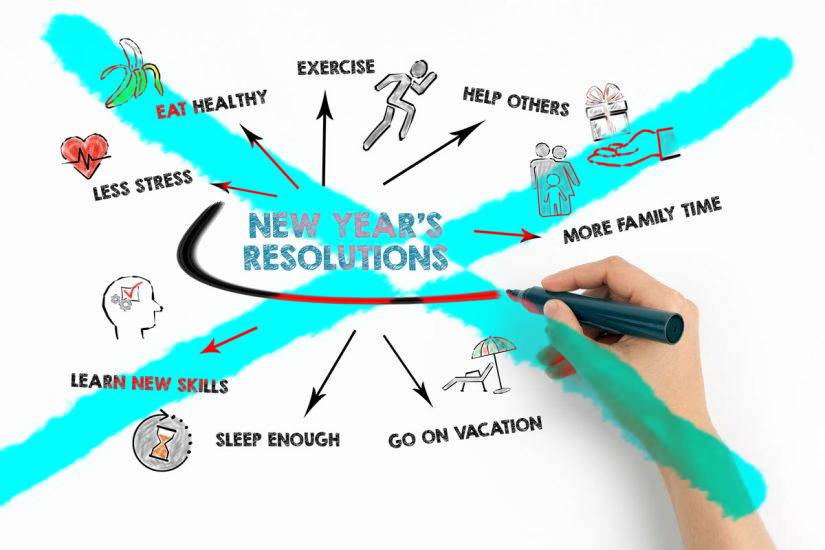
asks Freddie Stephenson, PhD graduate consultant
It’s the first week of February 2021. The second month of another year that, like its predecessor, will endlessly be described as unprecedented and challenging. Nonetheless, it is still worth reflecting and asking ourselves the question: are we keeping up with our new year resolutions? Or more importantly, should we be setting them at all?
Just before the Christmas period, a colleague posted about the topic of new year’s resolutions. Like many of us, he told a familiar story of setting lofty resolutions only to abandon them at some point in mid-January. He pointed to a better alternative: Themes.
This got me thinking. I personally have had the same two resolutions for the past few years. On the one hand, I have set myself the goal of becoming more flexible; physically that is. While my hamstrings remain eternally tight, it isn’t a stretch to say that I am proud of my steady progress. On the other hand, since 2018, I have set myself the goal of getting a tattoo. This one has been a non-starter. I think there is a good reason that one of these new year’s resolutions has seen some semblance of success, while my tattoo aspirations have languished. The idea of themes really gets to the heart of it.
Goals are hugely important to driving how people and organisations get things done. It is why so much time needs to be spent gathering detailed requirements on projects, because we need to know how success looks before we can reach it. It is usually a good approach to set Smart (specific measurable achievable realistic and time-bound) objectives, but in the context of resolutions, themes are a much better idea. Here’s why.
If we look at my own resolutions, getting a tattoo is too absolute and measurable. I will either get one or not. There is very little I can do to advance that goal without going all in. My less specific goal of becoming more flexible, by contrast, is a series of small decision points and activities that trend in the right direction. Would I feel as successful if I had set myself the goal of doing the splits by the end of the year, or to stretch twice a day? Probably not. Ultimately, there is little point in making resolutions that will fail because they seem unachievable. Themes are so effective because they are resilient to my inevitable personal failings. Keeping the idea of getting more flexible in the back of my mind has led me to put some effort in, small and often, without feeling I need to achieve some lofty goal.
It was the same story when I spent hours each day plugging away at the write up of my PhD. With the daunting and nebulous task of academic writing in a humanities subject, it simply was not practical to sit down to a rigid daily goal of getting 2000 words typed up. It doesn’t work like that; it would be demotivating to not reach that line. Rather, my approach was to just have days about writing and days about editing. Either way, I was making meaningful progress, whether that was getting 2,000 words on paper or if it was just a paragraph.
What new year’s resolutions try to encourage, and what I am talking about here, is individual behavioural change. To be more specific, it’s about self-improvement and better performance. The essence of this idea of theme-based behavioural change is that, unlike hard and fast new year commitments that make it easy to fall short and hard to get back on the horse, “a good theme can’t fail,” as CGP Grey puts it in his excellent YouTube video on the topic.

The economic behavioural science behind changing behaviour positively shows that autonomy is a hugely influential factor driving better performance in the workplace. As Dan Pink explains in his book Drive: The Surprising Truth About What Motivates Us, human beings are purpose maximisers, not just profit maximisers. This is part of the reason that businesses today like to have a purpose, something which makes coming to work better. In essence, what more and more research is telling us is that beyond simple mechanical skills, we need to get past the carrot and stick analogy. Ultimately, people do better when they have some freedom. This is what theming does so well.
Rather than setting yourself the resolution of reading one book a week, set yourself the theme of reading. It’s broad and not too rigid, so you are unlikely to fail. If you do, it is easy to dust yourself off and continue anew. Besides, the theme may grow in ways that could surprise you. Magazines, internet threads, cookbooks, even audiobooks, are all reading, so the direction of travel is positive. Reading is one idea, but here are some themes that come highly recommended:
- Health
- Balance
- Simplicity
- Consistency
- Novelty
- Gratitude
To sum up then, do not be too hard on yourself if your new year’s resolution has already gone by the wayside. They are too resolute and, ironically, make us fail more than they help us improve. While goals and objectives need to stay, giving people breathing room with personal themes can get people thinking about how they think in a positive way. It’s working for me. Maybe you should think about giving it a go yourself?
